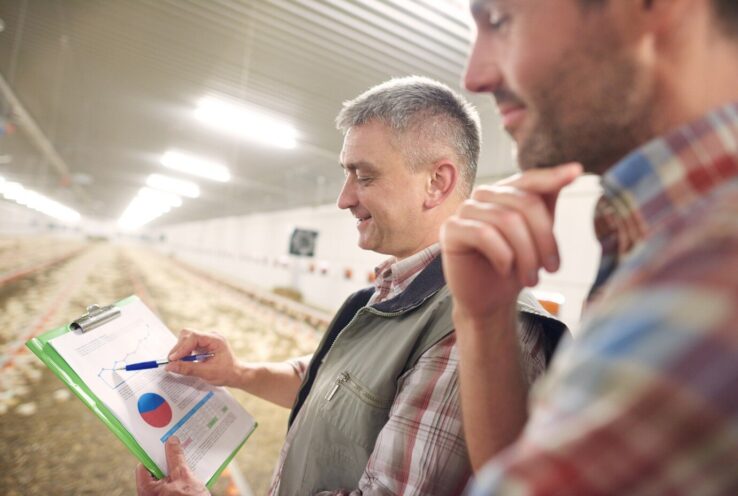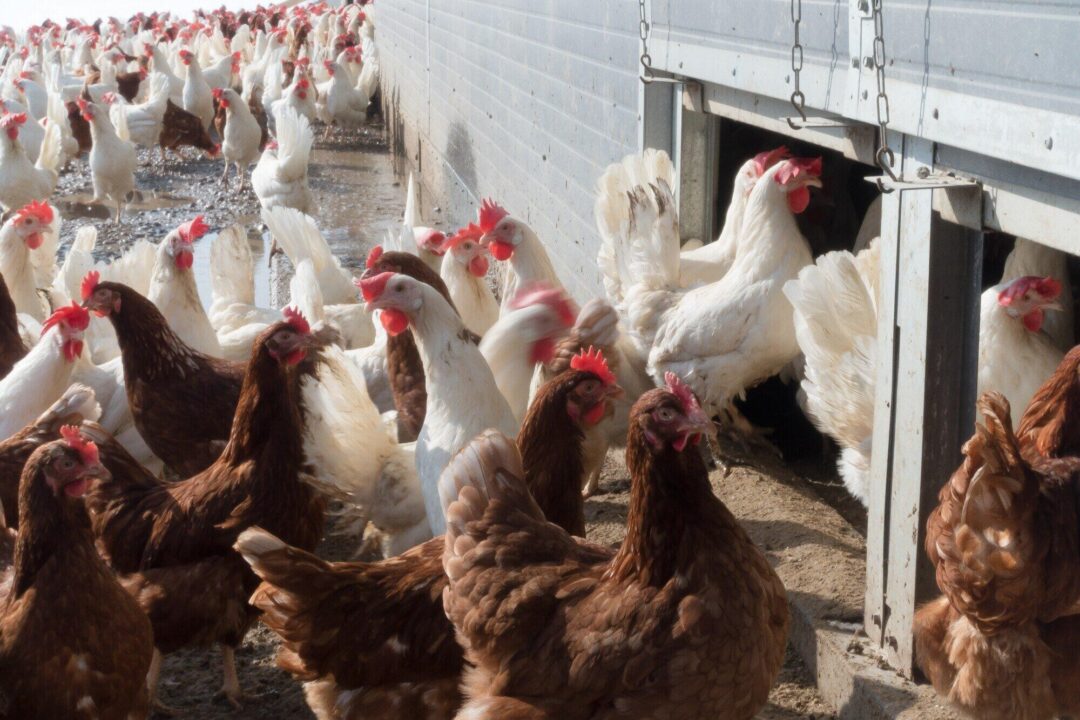Did you know that the global poultry market is projected to grow to $375.41 billion by 2030? This number reflects the increasing demand for chicken products worldwide.
Chicken factories play a crucial role in meeting this demand. However, this industry has been under scrutiny due to its impact on the environment. Awareness of the need for sustainable practices in these factories is growing.
This article discusses sustainable practices in a chicken factory. This article discusses sustainable practices in a chicken factory. These factory farming insights will help you understand the industry. Read on to learn more.
Organic Feed Production
One to promote sustainability is by using organic feed. This feed is produced without the use of synthetic pesticides, herbicides, or fertilizers. This reduces the environmental impact of chemical runoff and promotes healthier soil.
Organic feed also benefits the chickens themselves. It contains natural and nutritious ingredients that contribute to their health and well-being. The use of organic feed can result in more nutritious chicken products for consumers.
Waste Management

Source: freepik.com
Another important aspect of sustainable practices is waste management. Raising chickens in one place makes managing their waste a challenge.
To address this issue, many chicken factories have implemented innovative waste management systems.
This can include:
- composting
- biogas production
- anaerobic digestion
- using waste as fertilizer
These methods help to reduce the environmental impact of chicken waste. It also provides a source of renewable energy for the factory.
Energy-Efficient Operations
Industrial poultry processes need significant amounts of energy to operate. To promote sustainability, many factories are implementing energy-efficient practices and technologies.
This can include using renewable energy sources such as solar or wind power. It can also involve upgrading equipment and machinery to more energy-efficient models.
Water Conservation

Source: freepik.com
Chicken factories use large amounts of water for various purposes. To promote sustainability, many factories are implementing water conservation practices.
This can include recycling and reusing water for cleaning and other processes. It can also involve investing in more efficient water systems.
This can include using rainwater collection systems. It can also include using drip irrigation for crops used in chicken feed.
Antibiotic Reduction
The use of antibiotics in poultry production has been a topic in recent years. Excessive use of antibiotics can contribute to the development of antibiotic-resistant bacteria. This poses a threat to both animal and human health.
To combat this issue, many factories are implementing antibiotic-reduction strategies. This may include using natural alternatives such as probiotics. They are also incorporating better hygiene practices to prevent diseases in chickens.
Local Sourcing
Transportation is a significant contributor to greenhouse gas emissions. To reduce these emissions, many chicken factories are sourcing their materials locally.
Some factories like the one in this site grainfieldchickens.co.za produce their feed. This helps reduce transportation and ensure the quality of their ingredients. It also supports the local economy and reduces the carbon footprint of the factory.
Regenerative Agriculture

Source: freepik.com
Another sustainable practice in chicken factories is the use of regenerative agriculture techniques. This approach focuses on building healthy soil. This has numerous benefits for the environment.
Healthy soil helps to sequester carbon from the atmosphere. This reduces greenhouse gas emissions. It also promotes biodiversity and increases water retention.
Ethical Treatment of Chickens
It is also important to consider the ethical treatment of chickens. This includes:
- providing adequate living space
- access to sunlight and fresh air
- humane slaughter practices
- avoiding the use of growth hormones
- regular veterinary care
By prioritizing the well-being of chickens, sustainable chicken factories can improve animal welfare. They can produce healthier and more ethical products.
Biodegradable Packaging
Chicken products are often packaged in plastic. To reduce plastic waste, many factories are switching to biodegradable packaging materials.
This can include:
- compostable plastics
- paper-based packaging
- plant-based plastics
- biodegradable films
These materials break down more easily in the environment. This helps reduce pollution and waste in landfills.
It also promotes a circular economy. These materials can be composted and used to enrich soil.
Free-Range and Cage-Free Production
Factory farming has been criticized for its use of cramped cages for chickens. To promote sustainability, many factories are now transitioning to free-range and cage-free production.
This allows chickens to have more space and exhibit natural behaviors. It also promotes healthier and happier chickens. This method also reduces the negative environmental impact of factory farming practices.
Employee Education and Training

Source: freepik.com
Sustainability in chicken factories also includes the well-being and education of employees. Providing training on sustainable practices can help improve employee satisfaction and retention.
It also ensures that all employees are aware of the factory’s sustainability goals. This creates a more cohesive and motivated workforce in the pursuit of sustainability.
Use of Technology
Technology can also play a significant role in promoting sustainability. Many chicken factories are implementing advanced systems to optimize production.
This can include:
- precision feeding systems
- energy-efficient lighting systems
- automated ventilation systems
- data monitoring and analytics
These technologies help reduce waste, energy consumption, and environmental impact. They also improve the efficiency of the factory. This results in a more sustainable and profitable operation.
Consumer Education
Sustainable practices can only be effective if consumers support them. Therefore, educating the public about these practices is crucial.
This can involve labeling products as sustainably produced. It also involves raising awareness of the health benefits of sustainable chicken production. This can encourage consumers to make more informed purchasing decisions.
Collaboration with Local Communities

Source: freepik.com
Chicken factories can also promote sustainability by collaborating with local communities. This can involve supporting local initiatives and being transparent about their operations.
It also involves listening to the concerns of the community and addressing them. This helps build trust and positive relationships. These are essential for sustainable practices in the long run.
Chicken Factory: Minimizing Environmental Impact
A chicken factory has a significant impact on the environment due to its scale of operations. However, by implementing sustainable practices, this industry can reduce its environmental footprint.
Remember that small changes can make a difference in creating a sustainable world. As consumers, we also have the power to support these efforts. We can choose products from companies that focus on sustainability.
For more informative articles, check out more articles on our blog.




